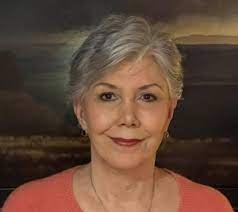In January 1996, less than 30% of Americans trusted the media to deal fairly with all sides of political issues; less than 30% trusted the media to “get the facts straight,” according to the Annual Review of Political Science. That is what Linda Chavez faced when she first spoke at Chautauqua Institution in 1996.
She last visited the grounds to discuss media bias, an important topic in the 1990s with both the 1987 abolishment of the Fairness Doctrine, which mandated broadcasters to present contrasting sides of controversial issues, and the decade’s rapidly advancing usage of the internet.
This summer, Chavez is slated to discuss her work with the initiative Republicans for Voting Rights.

At 10:45 a.m. Tuesday, July 26, on the Amphitheater stage, with the discourse on the 2020 election looming in America’s recent history, Chavez — who is also chair of the Center for Equal Opportunity — will once again bring a timely and relevant perspective to Chautauqua audiences in her lecture “How Do We Protect Democracy in a Divided America?”
“She joined us in 1996 and was an important voice inside that week on issues of media bias. To be able to have her join us again, in one of the most urgent and necessary conversations we can have as a community — we’re honored,” said Matt Ewalt, vice president and Emily and Richard Smucker Chair for Education. “I think she’ll be a truly valuable voice inside the week.”
Chavez is an advisory board member at Republicans for Voting Rights, an initiative that protects the integrity and accessibility of America’s elections, seamlessly continuing Week Five’s theme, “The Vote and Democracy,” as the topic of voting rights sits at the centerfold of American dialogue.
“It’s a larger issue at the very heart of conversation and discourse in this country from over the, certainly over the past year, in terms of the overall state of voting rights and questions about what kind of reforms are necessary,” Ewalt said.
Chavez has served in a myriad of appointed government positions, including being the 1985 White House director of public liaison, earning her the title of highest-ranking woman to serve in Ronald Reagan’s White House. She also served as staff director of the U.S. Commission on Civil Rights, and in 1986 was the Republican nominee for senator of Maryland.
Nominated in 2001 by President George W. Bush for the position of Secretary of Labor, she became the first Latina to receive a nomination to the U.S. Cabinet, and has been involved in the education of migrants, serving as chairperson on the National Commission on Migrant Education. She was also elected to serve as a U.S. Expert to the U.N. Sub-comission on the Prevention of Discrimination and Protection for Minorities.
With the experience and knowledge from these positions, Chavez will work to provide Chautauquans with a nuanced look at the state of American voting rights.
“Hers is a voice, early in the week, that will help challenge some of our assumptions, and begin to think about voting rights in a way that begins to look at … ways to work together on reform at a time in which voting rights are seemingly so polarized for us,” Ewalt said. “She’s likely to make the case in which we find ways to actually work together toward some very clear goals for the sake of democracy.”




